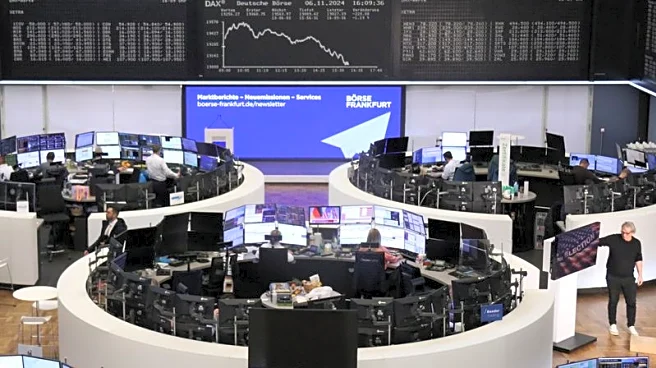What's Happening?
Japanese Prime Minister Sanae Takaichi's recent remarks regarding Japan's potential military response to a hypothetical Chinese attack on Taiwan have escalated diplomatic tensions between Japan and China.
Following these comments, Chinese President Xi Jinping has demanded a retraction, which Takaichi has refused, although she has agreed to avoid discussing specific scenarios in the future. The situation has led to a series of diplomatic calls, including discussions between U.S. President Trump and both Takaichi and Xi. Despite these communications, experts suggest that the crisis is unlikely to de-escalate soon, as Takaichi's position remains firm and Beijing continues to view her statement as a significant diplomatic offense.
Why It's Important?
The diplomatic spat between Japan and China over Taiwan is significant due to the potential implications for regional security and international relations. Taiwan's status is a sensitive issue for China, which views it as a part of its territory, while Japan's stance could influence broader geopolitical dynamics in East Asia. The involvement of the United States, with President Trump engaging in discussions with both leaders, highlights the global importance of the issue. The situation could affect trade relations and military alliances, with Japan's refusal to retract its statement potentially leading to increased tensions and impacting diplomatic relations between these major economies.
What's Next?
The ongoing diplomatic tensions may lead to further discussions and negotiations among the involved parties. President Trump's upcoming visit to Beijing and Xi's planned state visit to the U.S. could provide opportunities for dialogue and potential resolution. However, the entrenched positions of Japan and China suggest that significant diplomatic efforts will be required to address the underlying issues. The international community will be closely monitoring these developments, as any escalation could have broader implications for regional stability and global economic relations.
Beyond the Headlines
The situation underscores the complex nature of international diplomacy, where historical grievances and national interests often collide. The Taiwan issue is deeply rooted in post-war international order, and any changes in its status could have far-reaching consequences. The diplomatic spat also highlights the challenges faced by leaders in balancing domestic political pressures with international relations. The refusal to retract statements can be seen as a demonstration of national sovereignty, but it also risks exacerbating tensions and complicating diplomatic efforts.











